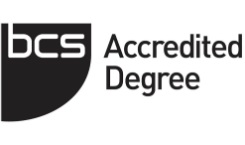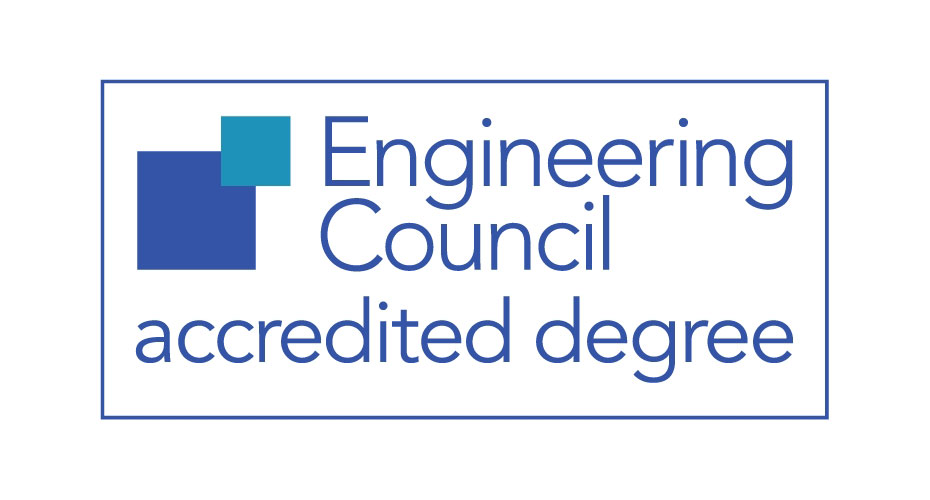| UCAS code | I402 |
|---|---|
| Duration | 4 years |
| Entry year | 2024 |
| Campus | Streatham Campus |
| Discipline | Computer Science |
| Contact | Web: Enquire online |
| Typical offer | A levels: AAA - AAB |
|---|---|
|
A-Level: ABB-BBB |
Overview
- Develop practical skills in the specification, design and implementation of computer systems, as well as an understanding of the theory behind them
- Benefit from excellent facilities spanning a wide range of machine types and software ecosystems
- Our world-class teaching is informed by active, up-to-the-minute research of international standing in developing fields including machine learning, artificial intelligence, and nature-inspired computation
- Opportunities for industry experience are available through summer placements
- Comprehensive, relevant programmes inspired by the Computer Science development cycle: theory, design, develop, test and apply
- We maintain excellent teaching links with computer-related industry partners such as IBM, The Met Office, NATS and Motorola
![]()
Top 20 for Computer Science
20th in The Times and The Sunday Times Good University Guide 2024
![]()
Excellent facilities spanning a wide range of machine types and software ecosystems
![]()
Partner to the Alan Turing Institute
![]()
Top 20 in the UK for graduate prospects
16th for graduate prospects for Computer Science in the Complete University Guide 2024 (94%)
Accreditations


Accredited by BCS, The Chartered Institute for IT for the purposes of fully meeting the academic requirement for registration as a Chartered IT Professional.
Accredited by BCS, The Chartered Institute for IT on behalf of the Engineering Council for the purposes of fully meeting the academic requirement for registration as a Chartered Engineer.
Entry requirements (typical offer)
| Qualification | Typical offer | Required subjects |
|---|---|---|
| A-Level | AAA - AAB |
GCE AL Maths grade B
Candidates may offer GCE AL Maths, Pure Maths or Further Maths. |
| IB | 36/666-34/665 | HL 6 in Mathematics (Analysis and approaches or Applications and interpretations) |
| BTEC | DDD | Applicants studying a BTEC Extended Diploma will also require GCE AL Maths grade B |
| GCSE | 4 or C | Grade 4/C in GCSE English language |
| Access to HE | 30 L3 credits at Distinction Grade and 15 L3 credits at Merit Grade | 12 L3 credits at Merit Grade in an acceptable Mathematics subject area |
| T-Level | T-Levels not accepted | N/A |
| Contextual Offer | A-Level: ABB-BBB |
Specific subject requirements must still be achieved where stated above. Find out more about contextual offers. |
| Other accepted qualifications | ||
| English language requirements |
International students need to show they have the required level of English language to study this course. The required test scores for this course fall under Profile B1. Please visit our English language requirements page to view the required test scores and equivalencies from your country. |
|
NB General Studies is not included in any offer.
Grades advertised on each programme webpage are the typical level at which our offers are made and provide information on any specific subjects an applicant will need to have studied in order to be considered for a place on the programme. However, if we receive a large number of applications for the programme we may not be able to make an offer to all those who are predicted to achieve/have achieved grades which are in line with our typical offer. For more information on how applications are assessed and when decisions are released, please see: After you apply
International Foundation programmes
Preparation for entry to Year 1 of an undergraduate degree:
Course content
The modules we outline here provide examples of what you can expect to learn on this degree course based on recent academic teaching. The precise modules available to you in future years may vary depending on staff availability and research interests, new topics of study, timetabling and student demand.
This year gives you a solid foundation in computer science. It includes an introduction to procedural and object-oriented programming, system architectures, computing for the web, professional issues of computing, and explores some of the boundaries of scientific knowledge in the field. Modules on vectors and matrices, and probability and discrete mathematics provide the mathematical underpinning of later modules in computer science and artificial intelligence.
Compulsory modules
| Code | Module | Credits |
|---|---|---|
| ECM1400 | Programming | 15 |
| ECM1407 | Social and Professional Issues of the Information Age | 15 |
| ECM1410 | Object-Oriented Programming | 15 |
| ECM1413 | Computers and the Internet | 15 |
| ECM1414 | Data Structures and Algorithms | 15 |
| ECM1415 | Discrete Mathematics for Computer Science | 15 |
| ECM1416 | Computational Mathematics | 15 |
| COM1011 | Fundamentals of Machine Learning | 15 |
The second year includes exposure to rigorous software development and software engineering best practice, together with information systems. Research-led modules in machine learning and artificial intelligence, and applied computing across science and industry give the distinctive flavour of this degree. Options this year include modules in algorithms, graphics, networks and IT management.
Compulsory modules
| Code | Module | Credits |
|---|---|---|
| ECM2414 | Software Development | 15 |
| ECM2418 | Computer Languages and Representations | 15 |
| ECM2419 | Database Theory and Design | 15 |
| ECM2426 | Network and Computer Security | 15 |
| ECM2427 | Outside the box: Computer Science Research and Applications | 15 |
| ECM2434 | Group Software Engineering Project | 15 |
Optional modules
| Code | Module | Credits |
|---|---|---|
| Select 30 Credits: | ||
| ECM2423 | Artificial Intelligence and Applications | 15 |
| ECM2425 | Mobile and Ubiquitous Computing | 15 |
| ECM2433 | The C Family | 15 |
| ECM1417 | Web Development | 15 |
| ******* | Free Choice Elective | 30 |
Your third year will see you complete a significant individual project work. In the project, you’ll develop a substantial software system for scientific and/or business use. This forms the core of the final year and allows you to develop your skills and interests in computer science. The wide range of optional modules in your third year allows you to tailor your degree towards your specific interests.
Compulsory modules
| Code | Module | Credits |
|---|---|---|
| ECM3401 is Compulsory for students not taking Study Abroad | ||
| ECM3401 | Individual Literature Review and Project | 45 |
| ECM3429 and ECM3430 are Compulsory for students taking Study Abroad | ||
| ECM3429 | Term of Computer Science Studies Abroad | 60 |
| ECM3430 | Computer Science Individual Project | 30 |
Optional modules
| Code | Module | Credits |
|---|---|---|
| Students not undertaking Study Abroad will take 45 - 75 credits, and Students taking Study Abroad will take 30 credits (See details in Notes Field): | ||
| ECM3408 | Enterprise Computing | 15 |
| ECM3412 | Nature Inspired Computation | 15 |
| ECM3420 | Learning from Data | 15 |
| ECM3422 | Computability and Complexity | 15 |
| ECM3423 | Computer Graphics | 15 |
| ECM3428 | Algorithms that Changed the World | 15 |
| ECM3446 | High Performance Computing | 15 |
| EMP3001 | Commercial and Industrial Experience | 15 |
| ******* | Free Choice Elective | 30 |
In your final year everything you have learnt in your Computer Science studies comes together as you undertake an individual research project and group development project. The advanced computer science modules available in your final year allow you to further develop skills in your chosen area of interest.
Compulsory modules
| Code | Module | Credits |
|---|---|---|
| ECMM427 | Group Development Project | 30 |
| ECMM428 | Individual Research Project | 30 |
Optional modules
| Code | Module | Credits |
|---|---|---|
| Select 60 credits: | ||
| ECMM409 | Nature-Inspired Computation | 15 |
| ECMM422 | Machine Learning | 15 |
| ECMM423 | Evolutionary Computation & Optimisation | 15 |
| ECMM424 | Computer Modelling and Simulation | 15 |
| ECMM426 | Computer Vision | 15 |
| ECMM447 | Social Networks and Text Analysis | 15 |
| COMM510 | Multi-Objective Optimisation and Decision Making | 15 |
| COMM515 | Digital Twins and Simulation | 15 |
Fees
Tuition fees for 2024 entry
UK students: £9,250 per year
International students: £27,000 per year
Scholarships
The University of Exeter has many different scholarships available to support your education, including £5 million in scholarships for international students, such as our Global Excellence Scholarships*. Financial support is also available for students from disadvantaged backgrounds, lower income households and other under-represented groups to help them access, succeed and progress through higher education.
* Terms and conditions apply. See online for details.
Learning and teaching
Lectures, seminars and workshops
We make use of a variety of teaching styles, including lectures, seminars, workshops and tutorials. Most modules involve two or three lectures per week, so you would typically have about 10 lectures each week. In addition, workshops and tutorials support and develop what you’ve learnt in lectures and enable you to discuss the lecture material and coursework in more detail. You’ll have over 15 hours of direct contact time per week with your tutors and you will be expected to supplement your lectures with independent study. You should expect your total workload to average about 40 hours per week during term time.
Virtual learning environment
We’re actively engaged in introducing new methods of learning and teaching, including increasing use of interactive computer-based approaches to learning through our virtual learning environment, where the details of all modules are stored in an easily navigable website. You can access detailed information about modules and learning outcomes and interact through activities such as the discussion forums.
A research and practice led culture
We believe every student benefits from being taught by experts active in research and practice. You will discuss the very latest ideas, research discoveries and new technologies in seminars and in the field and you will become actively involved in a research project yourself. All our academic staff are active in internationally-recognised scientific research across a wide range of topics. You will also be taught by leading industry practitioners.
Assessment
Modules are assessed by a combination of continuous assessment through small practical exercises, project work, essay writing, presentations and exam.
Optional modules outside of this course
Each year, if you have optional modules available, you can take up to 30 credits in a subject outside of your course. This can increase your employability and widen your intellectual horizons.
Proficiency in a second subject
If you complete 60 credits of modules in one of the subjects below, you may have the words 'with proficiency in [e.g. Social Data Science]' added to your degree title when you graduate.
- A Foreign Language
- Data Science
- Entrepreneurship
- Innovation
- Law
- Leadership
- Social Data Science
Your future

A degree from Exeter is highly valued by employers. Management and personal skills are built into our programmes and our students take advantage of the wide range of extracurricular and personal development opportunities offered by the University, including volunteering and playing an active role in student societies.
Our staff are active in developing our programmes and services to improve the employability of our students. We also have a dedicated Careers Consultant who provides career workshops tailored to computer science, as well as support in job applications and interview skills. The Career Zone run several careers fairs throughout the year which are particularly successful in putting major UK employers in touch with Exeter students. Relevant employers visit the department from the first year to meet and hold mock interviews with students, with the aim of helping them to develop their career ideas at an early enough stage to help with module choices and placement decisions
Career opportunities for computer scientists are limitless and graduates can be found working in the private and public sector in areas such as software engineering, health, communications, education, life sciences, physical sciences, finance and manufacturing. Computer scientists from Exeter have a reputation as being articulate, numerate, problem solvers, who typically claim great job satisfaction, a good salary and a huge range of career possibilities.
Our single honours Computer Science degrees explore more than simply how computers and software work. They focus on the wider context within which the subject must operate; from the precise technical details to the social, scientific and industrial application. By combining logical thinking with key mathematical skills, they will lead to a wide variety of careers which require graduates who understand the science behind computer technology.
Career Paths
As an Exeter Computer Science and IT graduate you may find yourself working with business IT systems, the web, mobile communications, games technology, or in the management and development of the safety-critical systems that control planes, trains and power stations.
The broad-based skills acquired during your degree will give you an excellent grounding for a wide variety of careers, not only those related to Computer Science but also in wider fields. Examples of roles recent graduates are now working as include:
- Academic research
- Business Analysts, Architects or Systems Designer
- Cyber Security Professional
- Engineer
- Financial Accounts Manager
- IT Network Professional
- IT Quality and Testing Professional
- Programmer
- Software Developer
Industrial Experience
As part of the four-year degree, you can choose to take an optional Commercial and Industrial Experience module during the vacation before the third year (subject to availability). This very rewarding opportunity allows you to gain paid work experience while earning credits towards your degree programme. Following the placement you can report on your experience which, alongside a report from the employer, enables you to count your experience as a third-year optional module. We have excellent links with employers and can provide assistance in finding suitable employment.











